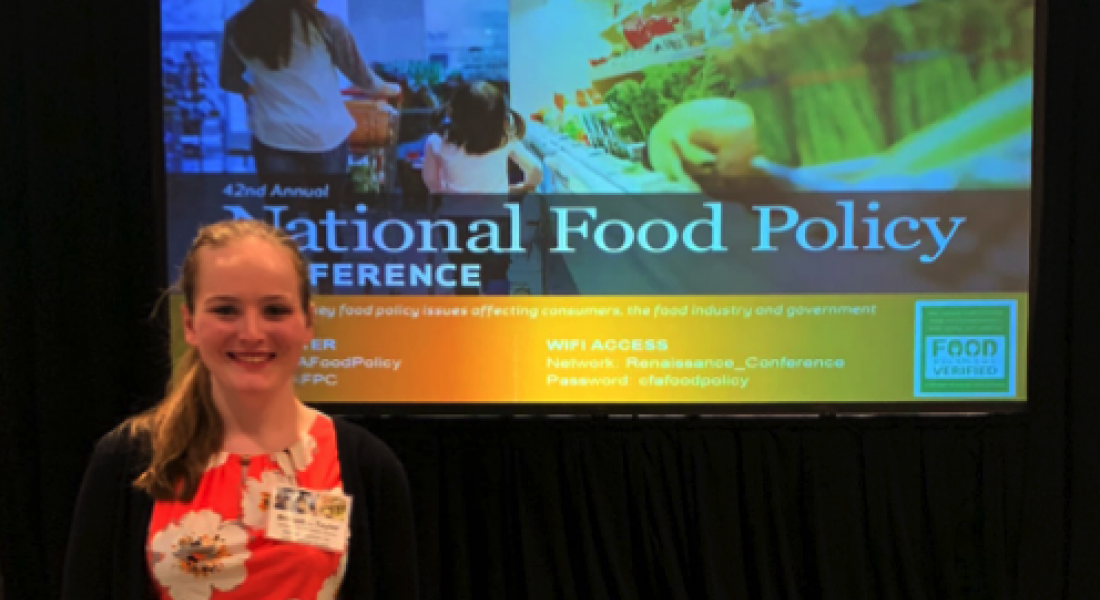
Bridget Taylor is a junior in the Kellogg International Scholars Program.
Congresswomen, academic scholars, industry leaders, and professionals from federal agencies gathered to participate in an opendialogue on the nation’s most pressing food policy concerns facing consumers. Hosted by the Consumer Federation of America, the National Food Policy Conference took place March 14-15, 2019 in downtown Washington D.C. The origins of the food on consumers’ tables has intrigued me since I began cooking regularly in high school. Suddenly, I realized I had a choice of the food that would appear on my table. At Notre Dame, I worked to focus my research with the Kellogg Institute and classes, when possible, on agriculture and food policy. The National Food Policy Conference piqued my interest because I could engage in the themes of sustainability, food safety, and nutrition both as a consumer and as a researcher in the field.
Each speaker, whether giving a keynote address or participating on a panel, gave concrete action steps to making the food system work to the benefit of the poor, the sick, the agriculture and food industry workers, or simply everyday people. On the first day, Frank Yiannas, the Deputy Commissioner of Food Policy and Response at the FDA, shared about the integration of technology to the Food Safety Modernization Act (FSMA) to increase prevention of food-borne illnesses with quick traceability and farm inspections. U.S. Senator Debbie Stabenow of Michigan discussed the gains made in the 2018 Farm Bill, the largest conservation effort of private land and water resources, ensuring that important initiatives, such as the push to have produce from farmer’s markets accessible to the food insecure through SNAP benefits, remained funded. During “The Food Waste Economy” talk, panelists addressed the confusion that date labeling lends to the waste of edible food products. The Food Recovery Network and the Goodrcompany expressed their efforts to redistribute leftover food or unfit produce to people in need.
The conversations continued the next day, featuring the implications of the US trade wars with China and Mexico as well as the buzz surrounding alternative meat options. Lesly McNitt from the National Farm Grower’s Association spoke about how the new NAFTA bill would affect Midwestern corn farmers with changing demands from Mexico, China, and Japan. She reflected on the importance of long-term relationship building in trading partners. In the discussion of “The Next New Food”, she presented the solutions and problems posed to environmental and sustainability concerns from gene editing, GMOs, and cell-cultured meat. Dana Wagner of Impossible Foods demonstrated the potential of the “Impossible Burger” derived entirely from plant sources both in the US market and abroad.
Throughout the conference, I found ties to my endeavors at Kellogg and Notre Dame. I was able to exchange ideas with fellow attendees on anaerobic digestion as a method to use inedible food waste and the importance of listening directly to agricultural laborers when advocating for their rights. The diversity of perspective on the panels showed me that although approaches differ, the collective consumer’s interest holds a powerful influence across the food sector. Hearing about the advances and setbacks firsthand from the leaders driving them was a powerful experience that will inspire my research goals and efforts to develop sustainable food systems in the US and around the world.





